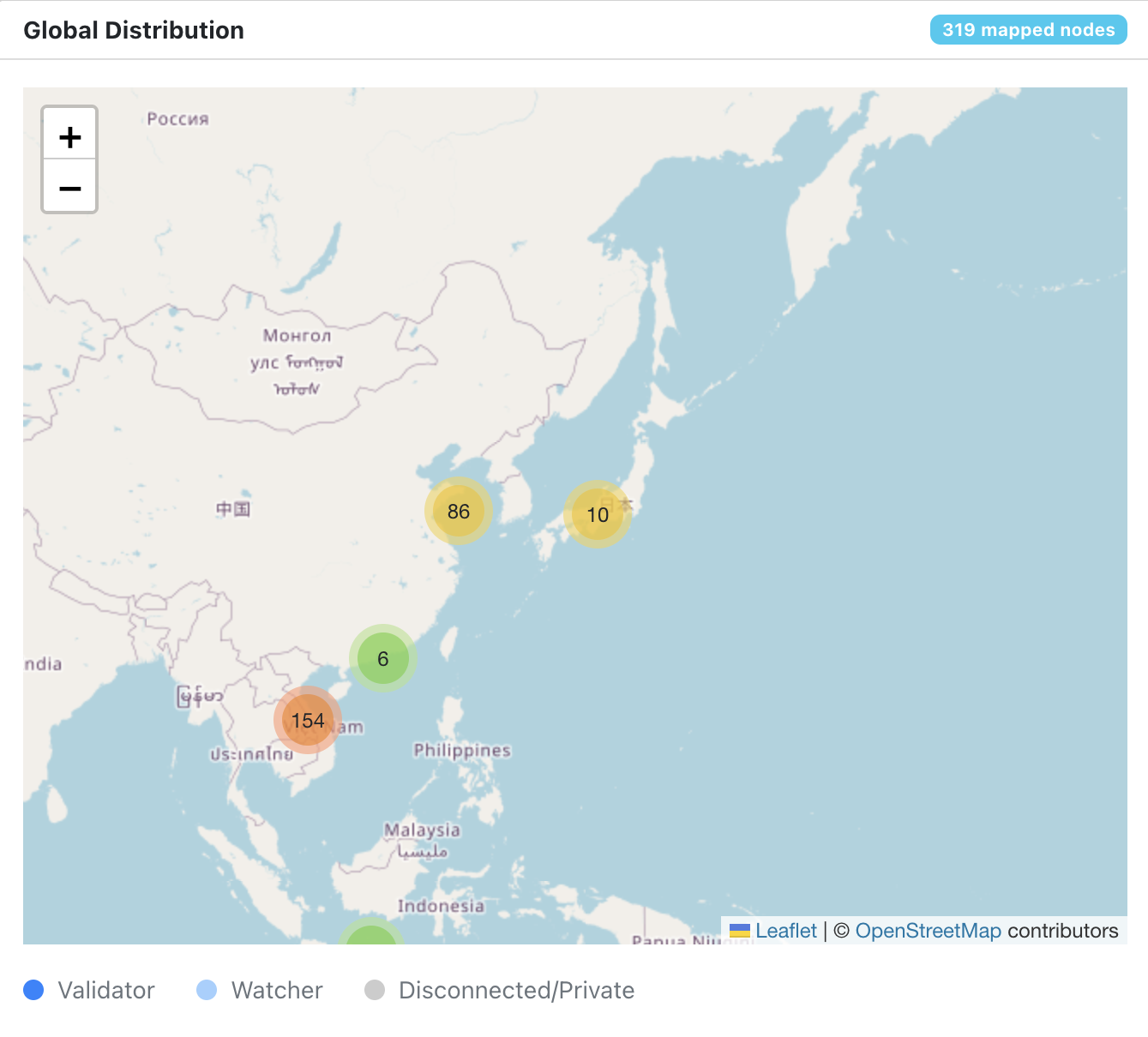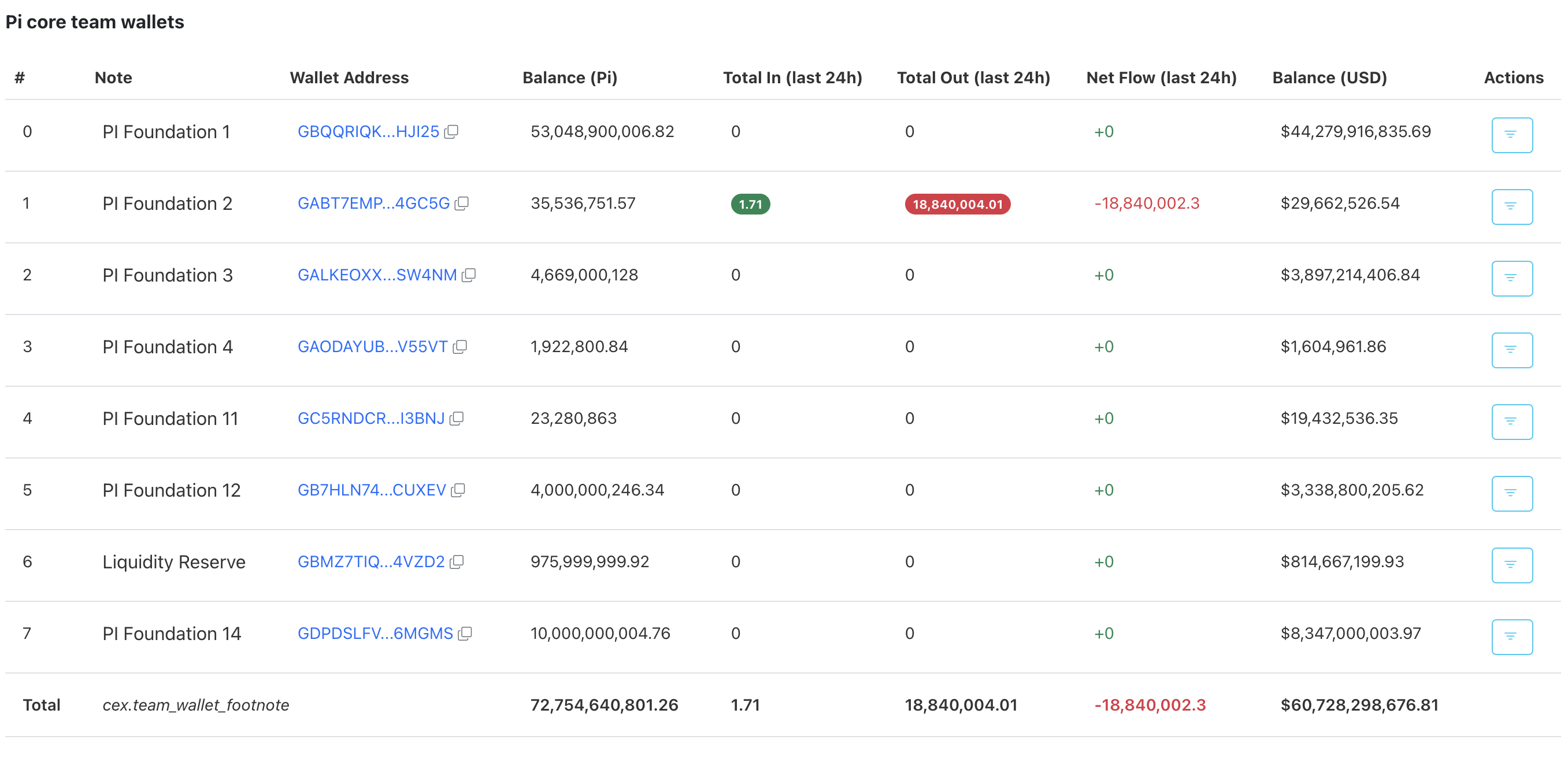PI networks face growing challenges as nearly half of their total nodes are concentrated in Vietnam. This high concentration and strict national crypto regulations have raised concerns about the decentralization and stability of the project in the long term.
Additionally, the core team’s control over most supply of PI coins (PIs) adds more of these concerns.
Is the future of PI networks at risk?
According to Piscan data, Vietnam has 154 of the 319 nodes in its network worldwide, accounting for 48.2% of the total. At the time of pressing, 33 of the 76 connected nodes were located there, further highlighting Vietnam’s advantage.

Vietnam’s PI network total node. Source: Piscan
It is worth noting that the PI network has only two validator nodes. Both are part of the core team. This in itself is a major centralization issue, and many people start questioning the integrity of the network.
Nevertheless, the geographic concentration of watcher nodes of PI networks in Vietnam raises additional concerns about network equity and decentralization, as users in one country may hold disproportionate control over network activity.
Vietnam’s legal framework adds even more complexity. According to Vietnamese law, cryptocurrencies like PI coins are not part of legal non-cash payment instruments. Additionally, authorities may fine individuals using PI coins for payment.
“A person or organization using cryptocurrency, including PI COIN, will be subject to penalties under Article 26-6-6 for payment transactions. March post.
The country’s careful approach is further demonstrated by legal warnings regarding the potential risks of PI networks. In 2023, Vietnamese authorities began investigating the PI network, citing concerns about its business model.
That’s not all. Vietnam’s Ministry of Finance has proposed new regulations aimed at tightening cryptocurrency surveillance by limiting custody to authorized institutions only. The proposal highlights the need for stricter control over Vietnam’s cryptocurrency activities, ensuring greater transparency, security and compliance with local laws.
Although still under consideration, this policy could impact the operation of local miners and destabilize the infrastructure of the PI network.
Compounding these issues is the token distribution in the PI network. Piscan data revealed that Pi Foundation Wallets owns 60.7 billion PIs, totaling 100 billion supply.

PI coin supply concentration. Source: Piscan
This centralization undermines the trust and distributed spirit that cryptocurrencies seek to materialize.
“As long as a team has some coins, it will never be decentralized,” the user wrote on Reddit.
Additionally, Beincrypto recently reported that the pioneer claimed that the team was engaged in insider sales and further eroding trust. Therefore, in order to address these structural vulnerabilities, it is important for projects that sell themselves as a distributed, user-driven ecosystem, to maintain reliability and ensure long-term stability.


